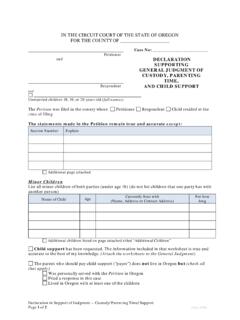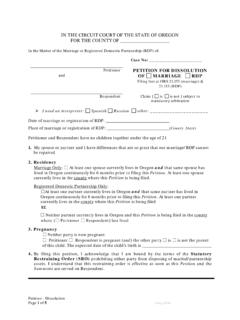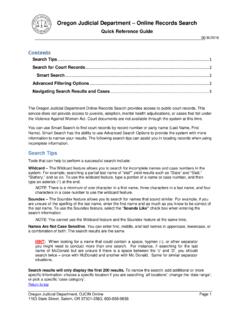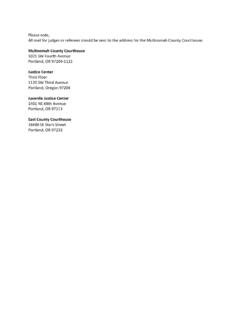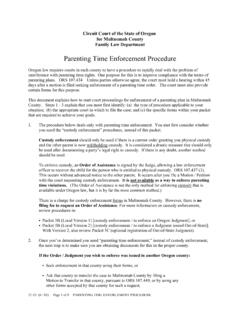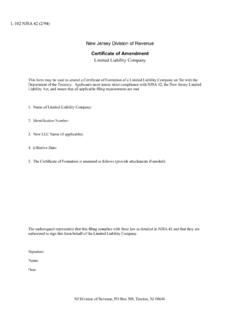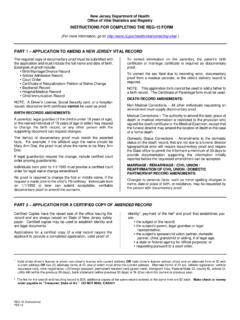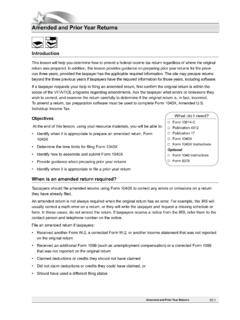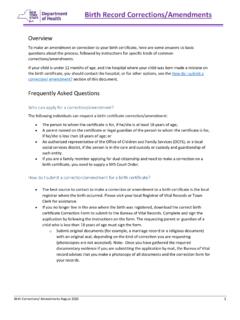Transcription of CHAPTER 5 Proceedings in Civil Cases
1 UTCR 8/1/17 CHAPTER 5 Proceedings in Civil Cases NOTE: Rules specifically relating to contempt Proceedings are located in UTCR CHAPTER 19. CONFERRING ON MOTIONS UNDER ORCP 21, 23 and 36-46 (1) The court will deny any motion made pursuant to ORCP 21 and 23, except a motion to dismiss: (a) for failure to state a claim; or, (b) for lack of jurisdiction, unless the moving party, before filing the motion, makes a good faith effort to confer with the other party(ies) concerning the issues in dispute. (2) The court will deny any motion made pursuant to ORCP 36 through 46, unless the moving party, before filing the motion, makes a good faith effort to confer with the other parties concerning the issues in dispute.
2 (3) The moving party must file a certificate of compliance with the rule at the same time the motion is filed. The certificate will be sufficient if it states either that the parties conferred or contains facts showing good cause for not conferring. (4) Upon certification that a motion is unopposed, it may be submitted ex parte. AUTHORITIES IN MOTIONS AND OTHER REQUIREMENTS (1) Every motion document must include a memorandum of law or a statement of authority explaining how any relevant authorities support the contentions of the moving party.
3 (2) If a pleading is moved against in more than two particulars under ORCP 21 D or E, there must be attached to the motion a copy of the pages of the pleading moved against with the parts of the pleading to be stricken shown in parentheses and the parts to be made more definite and certain underlined. OPPOSING PARTY S RESPONSE; TIME FOR FILING RESPONSE AND REPLY In matters other than motions for summary judgment: (1) An opposing party may file a written memorandum of authorities in response to the matters raised in any motion not later than 14 days from the date of service of the motion.
4 (2) A reply memorandum, if any, must be filed within 7 days of the service of the responding memorandum. MOTIONS TO BE DETERMINED BY THE PRESIDING JUDGE OR DESIGNEE The presiding judge or designee shall hear and determine all motions. UTCR 8/1/17 ORAL ARGUMENT ON MOTIONS IN Civil Cases ; APPEARANCE AT NONEVIDENTIARY HEARINGS AND MOTIONS BY TELECOMMUNICATION (1) There must be oral argument if requested by the moving party in the caption of the motion or by a responding party in the caption of a response. The first paragraph of the motion or response must include an estimate of the time required for argument and a statement whether official court reporting services are requested.
5 (2) A party may request that a nonevidentiary hearing or a motion not requiring testimony be heard by telecommunication. (a) A request for a nonevidentiary hearing or oral argument by telecommunication must be in the caption of the pleading, motion, response, or other initiating document. (b) If appearance or argument by telecommunication is requested, the first paragraph of the pleading, motion, response, or other initiating document must include the names and telephone numbers of all parties served with the request.
6 The request must be granted. (c) The first party requesting telecommunication must initiate the conference call at its expense unless the court directs otherwise. (3) Telecommunication must be by telephone or other electronic device that permits all participants to hear and speak with each other and permits official court reporting when requested. When recording is requested, telecommunications hearings must be recorded by the court if suitable equipment is available; otherwise, it will be provided at the expense of the party requesting recording.
7 STIPULATED AND EX PARTE MATTERS (1) A judicial district may adopt a local rule regarding specific stipulated or ex parte matters for which the documents must be presented conventionally as defined in UTCR and may not be electronically filed. SLR is reserved for judicial districts to adopt a local rule for that purpose. (2) Any stipulated or ex parte matter that may be presented conventionally may be delivered by mail or messenger to the trial court administrator for distribution to a judge for signature. An ex parte default, a stipulated order, or a stipulated judgment that may be presented conventionally also may be personally presented to a judge by the attorney or the attorney s agent.
8 Other types of ex parte matters personally presented to a judge must be presented by the attorney. (3) A motion for an ex parte order must contain the term ex parte in the caption and must be accompanied by a proposed order. (4) Ex parte matters that are presented conventionally shall be presented anytime during court hours, except as modified by SLR promulgated pursuant to UTCR Until such local rules are adopted, stipulated and ex parte matters may be personally presented anytime during court hours. UTCR 8/1/17 MOTION FOR LEAVE to amend PLEADING (1) Except as provided in section (2) of this rule, whenever a motion for leave to amend a pleading, including a motion to amend to assert a claim for punitive damages, is submitted to the court, it must include, as an exhibit attached to the motion, the entire text of the proposed amended pleading.
9 The text of the pleading must be formatted in the following manner: (a) Any material to be added to the pleading must be underlined and in bold with braces at each end. (b) Any material to be deleted from the pleading must be italicized with brackets at each end. (2) If the motion to amend is for a pleading that was composed using preprinted forms that have been completed by filling in the blanks, the moving party may comply with this rule by making a copy of the filed pleading and formatting the text of the pleading in the following manner: (a) Any material to be added to the pleading must be interlineated and underlined with braces at each end.
10 (b) Any material to be deleted from the pleading must have brackets at each end. STATEMENT FOR ATTORNEY FEES, COSTS, AND DISBURSEMENTS In Civil Cases , the statement for attorney fees, costs, and disbursements must be filed in substantially the form set forth in Form in the UTCR Appendix of Forms. NOTICE TO COURT IN WATER RIGHTS Cases ; NOTICE TO COURT IN Cases SUBJECT TO SECTIONS 7, 13, 21 and 23, CHAPTER 5 OREGON LAWS 2013, REGARDING COMMENCING AN ACTION AGAINST A HEALTH CARE PROVIDER OR A HEALTH CARE FACILITY (1) Notice to Court in Water Rights Cases If at any time during a case a party asserts a disputed water right, the party must give notice to the court that the case involves water rights.

